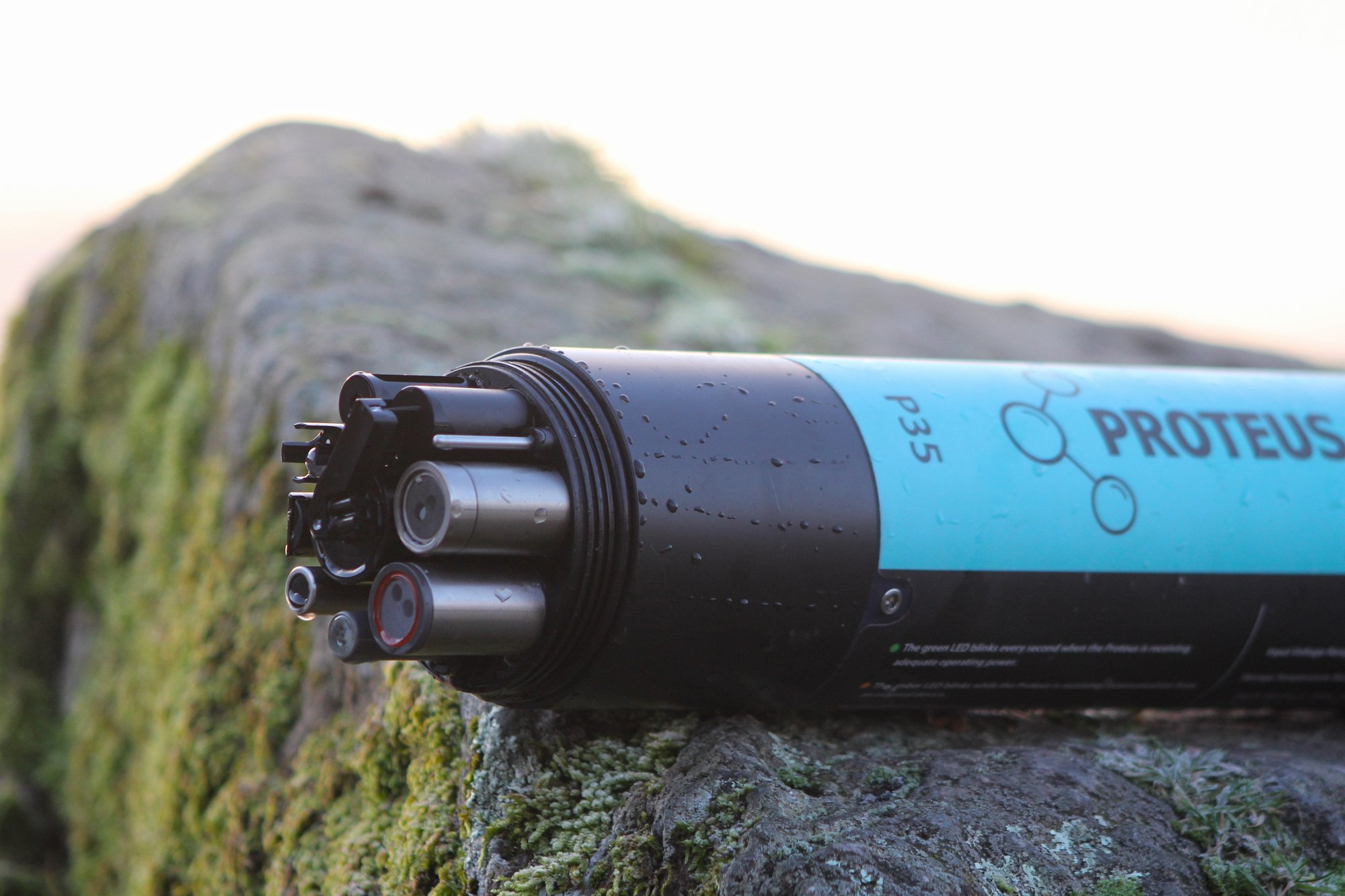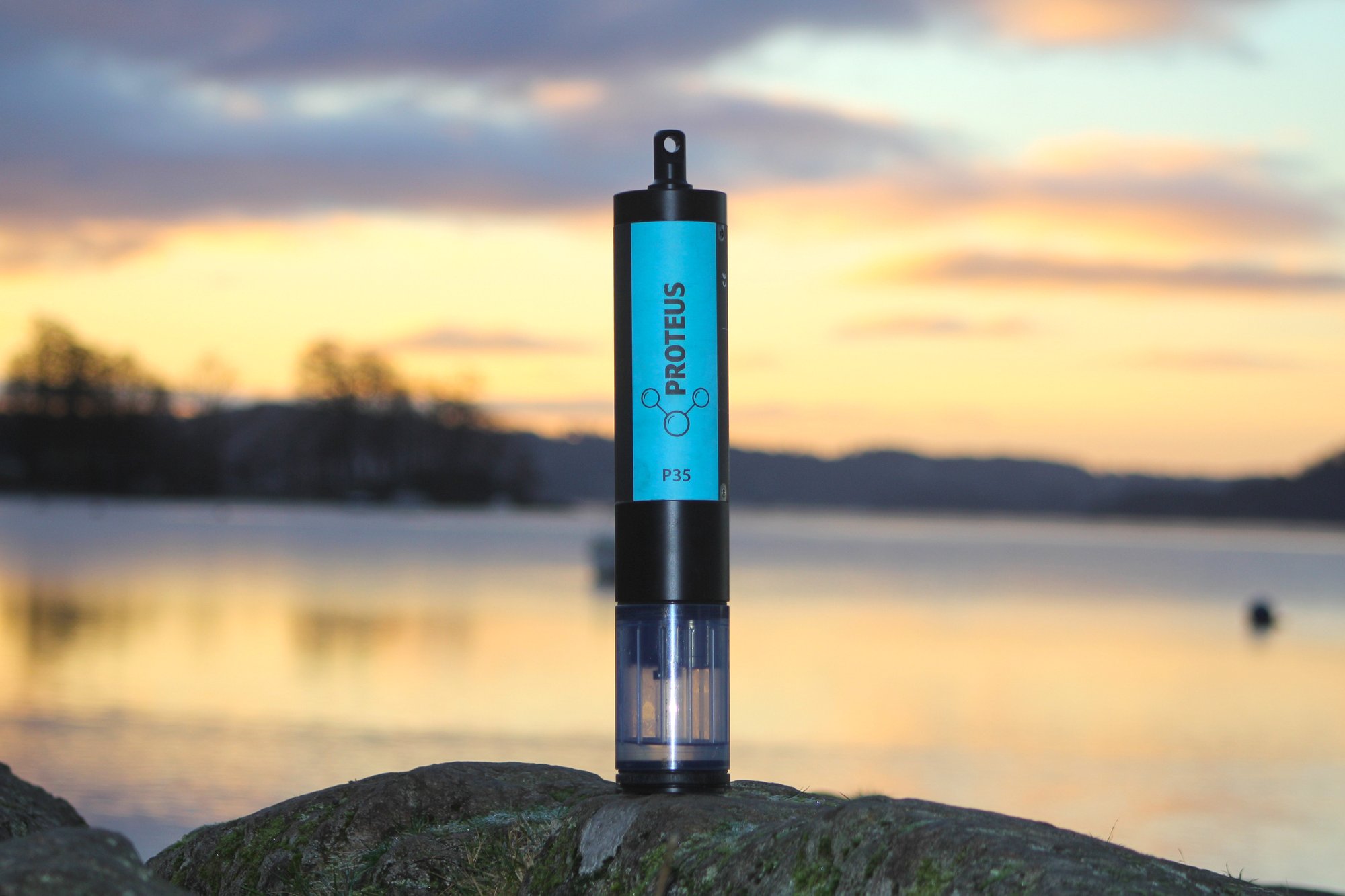Reviving Ruhr: How Proteus is Making River Bathing Safer And Accessible
Outdoor swimming is undergoing a renaissance in popularity. Exercise, exposure to chilly waters and nature offer numerous benefits for physical and mental wellbeing. However, water quality may be affected by factors such as agricultural, urban runoff and sewage contamination, posing often unknown risks to bathers.
In the few areas where monitoring of bathing water quality is in place seasonally, the significant investment in manual sampling and lab analysis for microbial indicators results in high-cost, low resolution data, limiting confidence in public safety.
In advance of the 2024 bathing season, Proteus Instruments presented our real-time coliforms monitoring capabilities for advanced alert systems at a workshop on River Bathing Water Quality Monitoring, organised by the Ruhrverband, a public water management company serving the Ruhr and Lenne catchment areas, Germany. Ruhrverband supplies water for 4.6 million people, and wastewater treatment for 60 towns and community areas.
After a 46-year bathing ban, initiatives such as the development of designated areas, monitoring programs, and environmental restoration projects have contributed to making river bathing on the Ruhr safer and more accessible to the public. For example, the City of Bochum employs public traffic-light indications of pollution status based upon sampling, lab analysis data and catchment scale modelling approaches driven by rainfall of 3mm or more. Bathing bans can only be lifted once the water situation complies with the requirements of the EU directive. To determine this, manual sampling is within a period defined by the early warning system is conducted. It will take another 48 hours for the result to be available. Climate change pressures on water quality are impacting the confidence in these models, and there remains a challenge for expansion of bathing water areas in the resource requirements to adequately evaluate pollution loading in catchments, with a growing need to develop real-time sensitivity to capture both trends and sporadic events.
Ruhrverband supplies water for 4.6 million people & wastewater treatment for 60 towns and community areas
After a 46-year bathing ban, initiatives have contributed to making river bathing on the Ruhr safer & more accessible to the public
A public traffic-light system indicates pollution status based upon sampling
As a novel solution, the Proteus multiparameter sonde will be deployed in the Ruhr River bathing areas during summer 2024 for calibration of e. coli, faecal and enterococci outputs, enabling validation against the accepted EC directive laboratory measurement standards as an early warning system. The Proteus will provide real-time outputs in CFU/100mL via our portable solar powered telemetry system allowing for rapid deployment and data access. The system requires no reagents or sample handling as it leverages real-time fluorescence at wavelengths sensitive to the natural fluorescent signature of Coliform bacteria.
Outputs will be calibrated against paired lab samples for generation of custom algorithms that provide real-time turbidity and temperature corrections. In similar applications the correlation between calibrated Proteus and lab E. coli measurements can be over 90% accurate where a full range of conditions has been captured. Calibration datasets can consist of samples collected from a range of different time points, catchment locations, lab spikes with potential contaminant sources and can grow over time, enhancing accuracy as part of mandated laboratory testing processes.


- Key benefits of the Proteus are ease of deployment and real-time data feed options
- Low maintenance and recalibration frequencies and high sensitivity to organic compounds.
- A single instrument can be configured to target additional specific pollution indicators, for example, road run-off, cyanobacteria, and nutrients, alongside the full suite of contextual monitoring parameters bringing the lab to the field.
Contact Proteus to discover how real-time coliforms monitoring systems can enhance the public safety and socio-economic value of your waterways!
Links to noted organisations:
Further reading and information:
